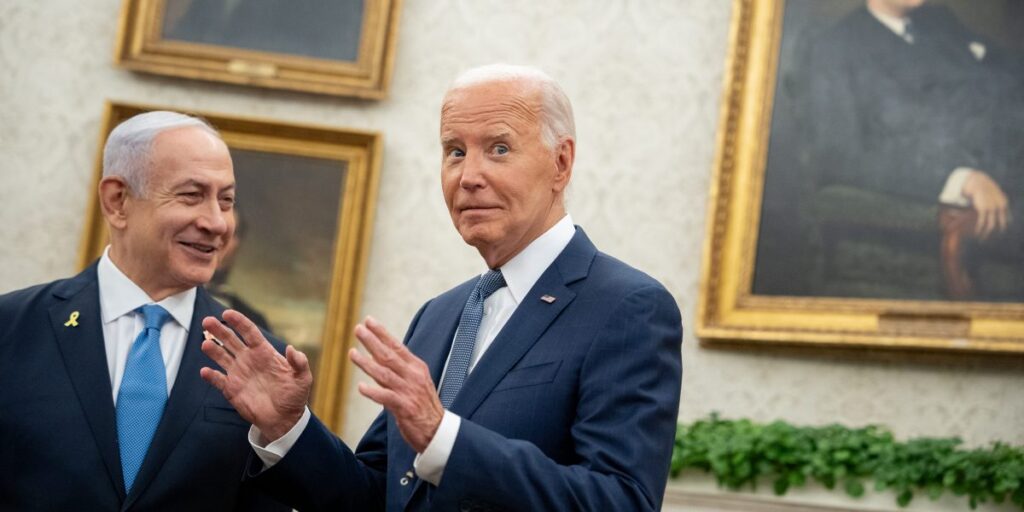
President Joe Biden’s meeting with Israeli Prime Minister Benjamin Netanyahu at the White House on July 25, 2024, marked a pivotal moment in U.S.-Middle East relations. The backdrop of their discussion was a 12-day conflict between Israel and Iran, a situation many argue could have been avoided with different diplomatic choices.
Almost a decade ago, former President Barack Obama warned of the stark choice between diplomacy and war regarding Iran’s nuclear ambitions. His administration successfully negotiated a nuclear deal in 2015, only for it to be dismantled during Donald Trump’s presidency. This unraveling set the stage for the recent hostilities.
Israel launched a series of attacks on Iranian military and nuclear sites, prompting retaliatory strikes from Iran. The U.S. intervened with a significant bombing run, raising fears of a broader regional conflict. After 12 days, a ceasefire was reached, but the damage was done.
The Roots of Conflict
The origins of this conflict can be traced back to the U.S.’s withdrawal from the Iran nuclear deal under Trump’s administration. This decision, heavily influenced by Netanyahu, left a diplomatic void that Biden had the opportunity to fill upon taking office in 2021.
Biden’s administration initially indicated a desire to return to the deal, but negotiations were complicated by demands that Iran reverse its nuclear advancements before the U.S. would re-enter the agreement. This approach led to prolonged negotiations that ultimately failed to restore the accord before Iran’s presidential elections brought hard-liners back to power.
Biden’s Missed Opportunities
Upon entering office, Biden prioritized undoing many of Trump’s policies, yet his approach to the Iran deal was cautious. His administration’s insistence on preconditions for rejoining the deal consumed valuable time. Meanwhile, the regional political landscape shifted, with Iran’s nuclear program advancing significantly.
Advisers like Brett McGurk, who supported U.S. military involvement in the conflict, focused on keeping Middle Eastern issues off Biden’s agenda as he concentrated on domestic matters. This strategic choice contributed to the missed opportunity for a diplomatic resolution.
“Ultimately, Biden’s team missed the window for a deal before a harsh critic of the original nuclear agreement was sworn in as Iran’s president.”
Consequences of Inaction
The failure to restore the nuclear deal had dire consequences. Iran’s nuclear capabilities advanced, and the region was plunged into conflict. The 12-day war resulted in significant casualties and destruction, with both Israel and Iran suffering losses.
Observers note that the conflict has left the U.S. in a precarious position, with limited diplomatic options and increased pressure to engage militarily. The situation underscores the importance of diplomacy in preventing further escalation.
Lessons from the Past
The recent conflict highlights the enduring relevance of Obama’s approach to Iran’s nuclear program. Despite criticism, the 2015 deal effectively limited Iran’s capabilities for over a decade. In contrast, military interventions have only temporarily set back Iran’s nuclear ambitions.
“Most estimates say Israel and America’s 12-day campaign only set Iran’s nuclear program back by as little as a month.”
Experts argue that diplomacy remains the most viable path to limiting Iran’s nuclear program. The failure to secure a deal under Biden’s administration has left the region more unstable and increased the risk of further conflict.
The Path Forward
As the U.S. navigates the aftermath of the 12-day war, the focus must shift to rebuilding diplomatic channels and addressing the root causes of the conflict. The lessons from this episode are clear: diplomacy is essential to preventing war and ensuring regional stability.
Moving forward, the U.S. must hold accountable those who failed to seize diplomatic opportunities and work towards a comprehensive solution that addresses the concerns of all parties involved. Only then can the cycle of conflict be broken, and a lasting peace achieved.






